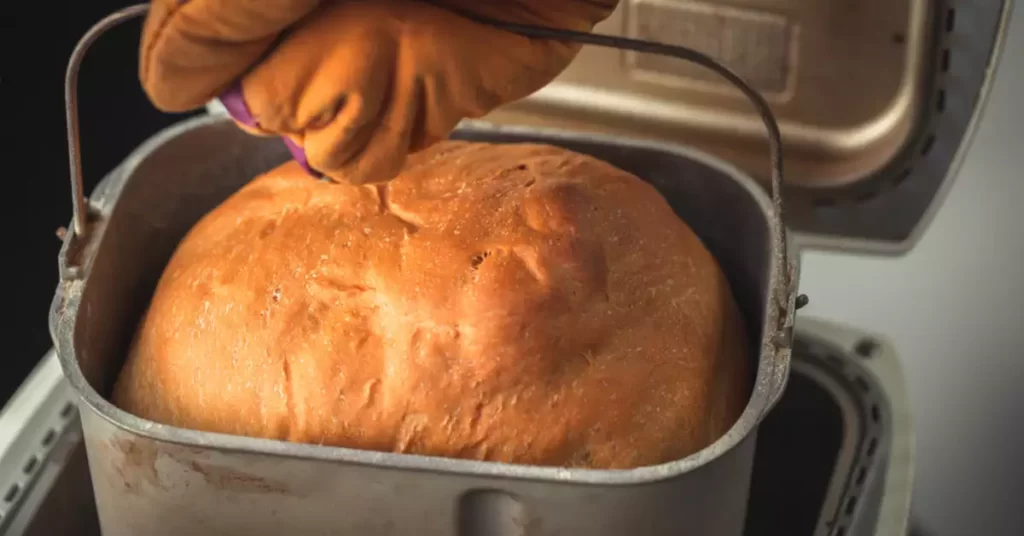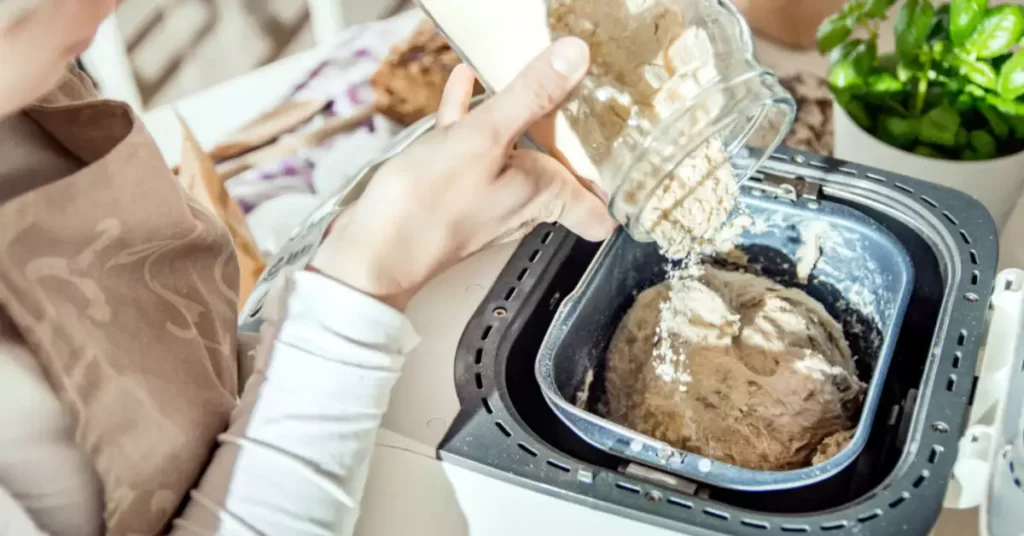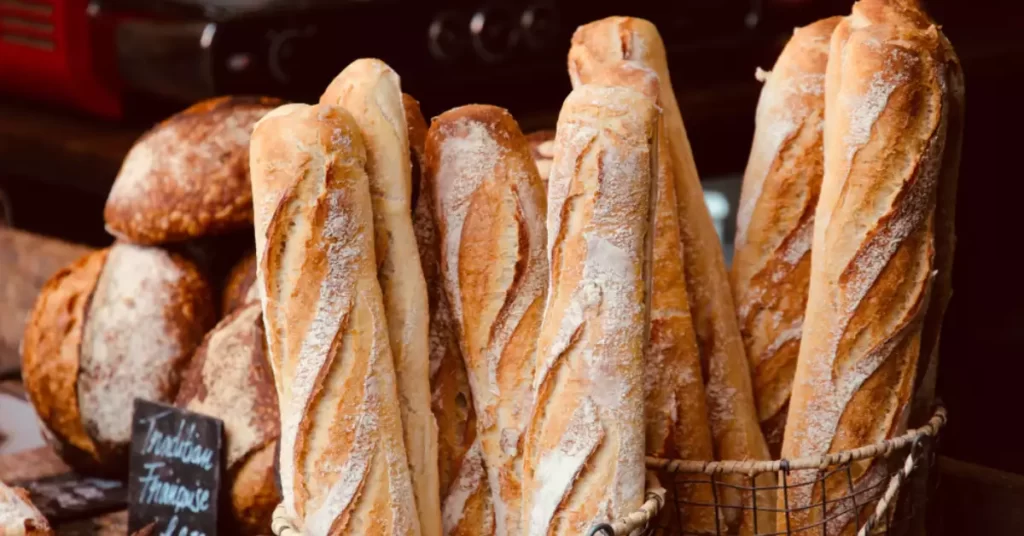One of the crucial aspects of making bread at home using a bread maker is understanding the costs involved. Let’s break it down.
Primarily, the expense comes from the raw materials. Flour, yeast, salt, sugar, and any add-ins like seeds, nuts, or dried fruit need to be accounted for. In my experience, the cost per loaf can range from $0.50 to $2.00, depending on the type and quality of ingredients used.
Additionally, there is the cost of energy. A bread maker can use up to 0.9 kWh per baking cycle, with an average energy rate of about $0.12 per kWh. This makes the energy cost per loaf approximately $0.11.
Lastly, the cost of the machine itself must be amortized over the number of loaves you plan to make during its lifetime. If a bread maker costs $100 and lasts for 500 loaves, the machine cost per loaf would be $0.20.
What is a Bread Maker?
A bread maker, also known as a bread machine, is a home appliance designed to bake bread. It automates the entire bread-making process—mixing, kneading, rising, and baking, providing a hands-off baking experience. The user needs to add the ingredients in the specified order, select the appropriate settings, and wait for the machine to work its magic.
Comparison: Store-Bought Bread versus Homemade Bread
To assess the value proposition of a bread maker, we need to compare homemade bread to its store-bought counterpart.
Cost Comparison Analysis
A loaf of store-bought bread can range from $1 to $5, depending on its type and quality. So, the cost of homemade bread can be similar to or lower than that of store-bought bread.
Quality of Ingredients and Health Impact
However, cost is not the only factor to consider. The quality and health impact of homemade bread can often surpass those of store-bought bread. At home, I control the ingredients, avoiding preservatives and reducing sodium, sugar, or fat content as needed.
Bread Variety and Personal Preferences
Moreover, a bread maker allows me to experiment with different types of bread, fulfilling my personal preferences for variety and taste. I can make sourdough one day and rye the next, based on my mood.

Is a Bread Maker Worth the Investment?
Deciding whether a bread maker is worth the investment depends on a variety of factors. The initial cost of the machine is a crucial consideration. Basic models can start around $50, while higher-end models with advanced features can cost several hundred dollars.
Other factors include how often you consume bread and your preferences for taste and quality. While store-bought bread is often cheaper upfront, homemade bread doesn’t contain preservatives and lets you control what goes into your bread. When weighing the convenience and quality of homemade bread against the cost, many find that a bread maker is indeed a worthwhile investment.
The Cost Breakdown of Making Bread in a Bread Maker
There are three primary costs to consider when evaluating the cost of making bread in a bread maker: ingredients, electricity, and the machine itself.
The Price of Ingredients
The cost of ingredients can vary widely depending on the type of bread and where you buy your ingredients. A basic white bread might require flour, yeast, sugar, salt, water, and a bit of oil or butter. Assuming bulk purchases, the cost for a single loaf can be well under a dollar.
Electricity Usage
The energy usage of a bread maker can vary by model and the selected baking cycle. On average, a bread maker uses about 0.3 to 0.5 kWh per loaf. Considering the national average electricity rate, this cost is quite negligible—typically just a few cents per loaf.
The Cost of the Bread Maker Itself
The cost of the machine, amortized over the number of loaves made during its lifespan, is the final component to consider. If you buy a $100 bread maker and make one loaf per week, the cost of the machine per loaf decreases significantly over a couple of years.
Is it Cheaper to Make Your Own Bread with a Bread Maker?
The cost-effectiveness of making your own bread versus buying store-bought bread is nuanced. For a basic white or whole wheat bread, making your own bread can indeed be cheaper, even when factoring in the cost of the machine. However, the cost of artisan breads from a bakery can often exceed the cost of homemade bread, even when using more expensive ingredients.
The cost comparison also depends on the type of store-bought bread you typically purchase. Basic, commercially-produced loaves can be quite inexpensive, but they often lack the flavor and texture of homemade bread. In contrast, premium or specialty breads can be quite pricey.

Factors to Consider When Choosing a Bread Maker
Bread Maker Capacity
Bread makers come in various sizes, from small 1-pound loaves to larger 2.5-pound loaves. The size of the loaf you wish to make will play a role in the cost of the appliance. Larger capacity bread makers often come with a higher price tag due to their increased functionality and versatility.
Brand Reputation and Quality
Well-established brands are known for their quality and reliability. While purchasing a bread maker from a reputable brand may cost more, it often comes with the assurance of a longer-lasting appliance and a better overall experience.
Different Types of Bread Makers
There are two primary types of bread makers on the market: vertical and horizontal. Vertical bread makers are usually more affordable, but the loaf shape may not be as visually appealing. Horizontal bread makers tend to be more expensive, but they yield more traditional-looking loaves.
Programs and Settings
The number of pre-programmed settings and options available on a bread maker will influence its price. More advanced machines with numerous options and settings typically cost more than basic models with limited functionality.
Ease of Use and Maintenance
Bread makers with user-friendly interfaces and easy-to-clean components may cost more upfront, but they save time and effort in the long run. Consider whether investing in a bread maker with these features is worth the extra cost.
Warranty and Customer Support
A good warranty and responsive customer support can provide peace of mind and protect your investment. Bread makers with longer warranty periods and better customer service often come with a higher price tag.
Price Range
Bread makers can cost anywhere from $50 to $500. Basic models are typically more affordable, while high-end models with advanced features and settings can be quite expensive. It’s essential to consider your budget and requirements when selecting a bread maker.

The Benefits of a Bread Maker
The charm of a bread maker extends beyond the basic function of baking bread. Here’s a more detailed look into the advantages this appliance can bring to your kitchen and lifestyle:
Quality Control Over Ingredients
A bread maker allows you to have complete control over the ingredients used in your bread. This means you can cater to dietary needs or preferences, whether they are gluten-free, low-sodium, vegan, or just about anything else. There’s also the added benefit of being able to exclude preservatives and additives that are common in commercially produced bread.
Convenience
One of the biggest selling points of a bread maker is its convenience. With a bread maker, the once time-consuming process of making bread is drastically reduced. There’s no need to manually mix ingredients, knead dough, or even monitor baking times.
You simply need to add the ingredients, choose the appropriate settings, and let the machine do the work. Many bread makers also have a delay timer, allowing you to wake up to fresh bread in the morning or come home to a freshly baked loaf after work.
Variety of Bread
With a bread maker, you can experiment with a multitude of recipes, from basic white or wheat bread to fancier varieties like brioche or ciabatta. You can also make dough for pizza, rolls, and even non-bread items like jams or yogurt in some models.
Economical
Making your own bread can be more economical in the long run. Although the upfront cost of a bread maker and ingredients may be higher than buying a loaf from the store, homemade bread can be significantly cheaper per loaf, especially if you make bread frequently.
Freshness
There’s nothing quite like the smell and taste of freshly baked bread. With a bread maker, you can have this experience anytime you want, and nothing beats the flavor of a warm slice of bread straight from the bread maker.
Does a Bread Maker Save You Money in the Long Run?
Long-term savings from a bread maker primarily come from the difference in cost between homemade and store-bought bread, multiplied by the number of loaves you consume. If you frequently consume bread and opt for homemade bread over more expensive store-bought options, the savings can add up significantly over time.
Also, the longevity of a bread maker plays a role in these savings. A machine that lasts for many years will offer more value compared to one that needs to be replaced regularly.
Other Factors to Consider
Beyond the economic considerations, there are other reasons why a bread maker might be an excellent addition to your kitchen.
Nutritional Benefits
Making your own bread allows you to enhance the nutritional profile of your loaves. You can opt for whole grain flour, add nuts and seeds for extra fiber and healthy fats, or incorporate fruits for added flavor and nutrition. Plus, homemade bread is free from preservatives and artificial additives that are often found in store-bought bread.
Culinary Creativity
A bread maker can be a gateway to culinary creativity. You can try out various types of flour, add different seeds, nuts, fruits, or spices, or experiment with creative recipes. From cinnamon raisin bread to rosemary garlic loaf, the possibilities are endless.
Satisfaction of Home Baking
There’s a unique satisfaction that comes from baking your own bread. The process can be therapeutic, and the end result is gratifying. Plus, it can be a great learning opportunity for kids and a chance to impart valuable life skills.
Allergy-Friendly Options
For individuals with dietary restrictions or allergies, a bread maker can be a lifesaver. It enables you to control every ingredient that goes into your bread, ensuring it’s safe to eat. Whether you need to avoid gluten, dairy, nuts, or any other allergen, you can enjoy fresh bread without the worry.
Frequently Asked Questions (FAQs)
What’s the average cost of making a loaf of bread in a bread maker?
The cost can vary depending on several factors including the type of bread, the cost of ingredients, electricity usage, and the cost of the machine. However, a general estimate could be around $1 to $1.50 per loaf.
Can a bread maker save me money if I bake frequently?
Yes, if you bake frequently, the cost per loaf can be lower compared to buying from a bakery or store. Moreover, if you prefer high-quality artisan breads, which are typically more expensive to buy, you can achieve more significant savings.
Can I make other foods besides bread with a bread maker?
Yes, many bread makers have settings for making dough, pizza crust, cakes, and even jams. Check the user manual of your specific model for more information on its capabilities.
How long does it take to bake a loaf of bread in a bread maker?
Baking times vary depending on the type of bread, the machine’s settings, and the size of the loaf. Generally, it takes anywhere from 1 to 4 hours to bake a loaf of bread in a bread maker.
Final Thoughts
Making bread in a bread maker offers a cost-effective and convenient way to enjoy freshly baked bread at home. While there are initial costs involved, the potential savings and non-financial benefits make it a worthwhile investment for many.
Consider your bread consumption habits, preferences, and budget to make an informed decision. With a bread maker, you can savor the delights of homemade bread while enjoying the satisfaction of creating something delicious and nourishing in the comfort of your own kitchen.
